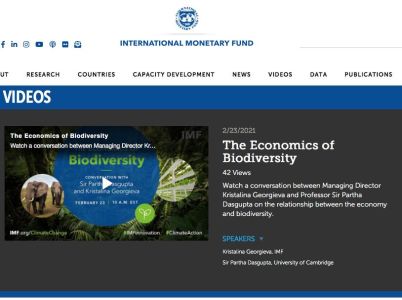Join getAbstract to access the summary!

Join getAbstract to access the summary!
Kristalina Georgieva and Partha Dasgupta
The Economics of Biodiversity
IMF, 2021
What's inside?
Economic growth and natural resource use must not outstrip the planet’s overall capacity.
Recommendation
With climate change an ever-increasing threat, natural capital – the full spectrum of ecosystems and biodiversity on Earth – is now emerging as a critical economic component. In this in-depth interview, IMF head Kristalina Georgieva explores the concept with professor Partha Dasgupta, one of the foremost thought leaders in environmental and resource economics. Readers seeking to understand the connection between biodiversity and a sustainable economy will appreciate this insightful overview.
Summary
About the Speakers
Kristalina Georgieva is the managing director of the IMF. Sir Partha Dasgupta is emeritus professor of economics at the University of Cambridge.

















Comment on this summary